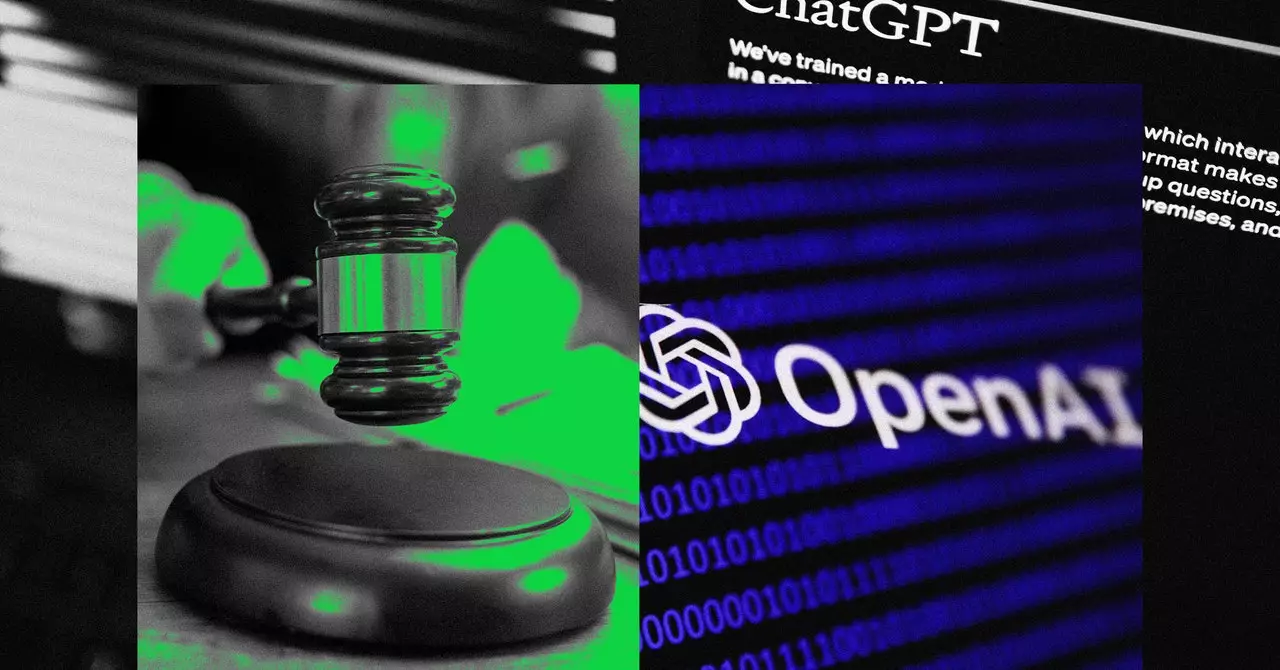The interplay between modern technology and copyright law is generating intense discussions, particularly as artificial intelligence (AI) systems continue to evolve. With cases involving companies like OpenAI making headlines, the Digital Millennium Copyright Act (DMCA) stands at the center of a turbulent legal landscape. Events surrounding recent DMCA claims highlight both the challenges and implications that legal experts and publishers face in attempting to navigate these uncharted waters.
The DMCA was established to protect copyright owners from unauthorized use of their work in the digital landscape. However, as AI technologies like OpenAI’s ChatGPT emerge, the applicability of these protections appears to be increasingly contested. A key figure in this dialogue is an attorney representing various media outlets in several legal proceedings against OpenAI. He asserts confidence that these DMCA claims are constitutionally permitted, suggesting a foundational belief in the rights afforded to publishers under the law.
Contrastingly, some legal experts express skepticism about the viability of these claims. Matthew Sag, a legal scholar with expertise in both law and artificial intelligence, boldly critiques the publishers’ approach, arguing that without concrete evidence illustrating how OpenAI’s models reproducing their content, the claims lack substantiation. This highlights the critical role of evidence in legal proceedings and raises questions regarding the effective strategies for publishers seeking redress under existing laws.
For disgruntled publishers to succeed, they must present tangible examples of infringement. Ann G. Fort, an intellectual property specialist, emphasizes that it is insufficient merely to assert broad claims of copyright violation. Instead, they must demonstrate specific output derived from AI models that closely mirrors their original content. This insistence on hard evidence may pose significant hurdles for media organizations, complicating efforts to challenge AI systems.
In the legal proceedings involving The Intercept, the dynamics shifted slightly. When OpenAI sought to have the case dismissed, the court allowed the publisher the opportunity to amend their complaint. This adaptability illustrates the necessity for media organizations to be strategic and persistent. By enhancing their case with 600 pages of evidence demonstrating how OpenAI’s models could generate content similar to their articles, The Intercept appears more robust in its pursuit of legal recourse.
However, the recent ruling on DMCA claims against OpenAI does not entirely threaten the prospect of future arguments. The presiding judge delineated her concerns, indicating that the DMCA claims specifically were lacking. She pointed out that the plaintiffs’ real contention may be more directly tied to the use of their articles, rather than merely claiming exclusion from OpenAI’s training data. This distinction could pave the way for alternative legal theories outside the current framework of DMCA claims.
The implications of the judge’s remarks extend beyond this single case, hinting at larger questions about the legal protections available to creative content producers in the digital realm. James Grimmelmann, another noted legal scholar, warns that the theory of “no standing” presented in this judgment might resonate through various sectors beyond AI, potentially reshaping interpretations of copyright law altogether.
As these legal battles unfold, they underscore a critical dilemma: How do existing copyright laws adapt to the innovative landscape defined by artificial intelligence? The questions posed by these cases are not merely academic; they directly address the financial foundation of media organizations and the ethical considerations surrounding content creation in the age of AI. As courts continue to grapple with the nuances of DMCA claims and the implications of AI technologies, publishers are left navigating a potentially seismic shift in their rights and protections.
Ultimately, the evolving legal framework around copyright infringements and AI technologies will come to define the future relationship between content creators and the groundbreaking technologies reshaping how we consume information. The resolution of these complex disputes may set crucial precedents that either reinforce or undermine the legal protections afforded to those who contribute to the rich tapestry of modern media.

